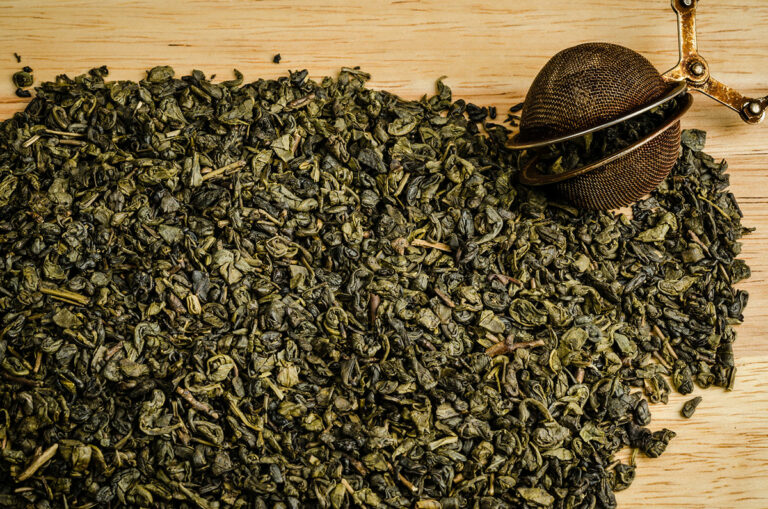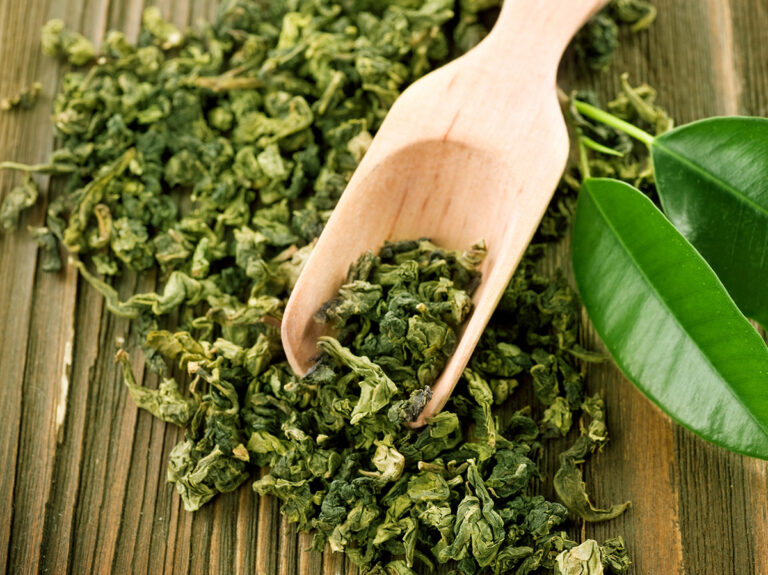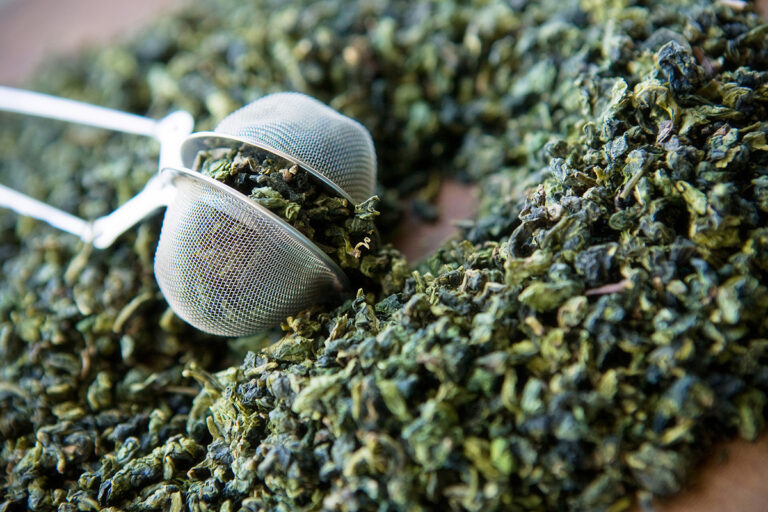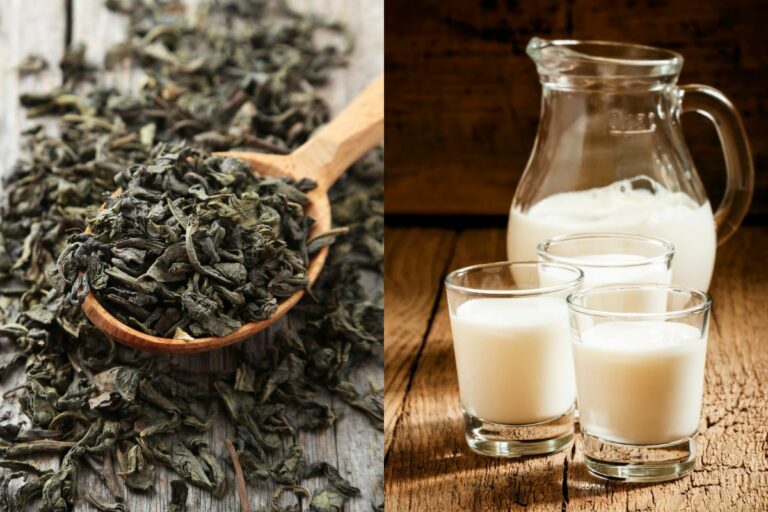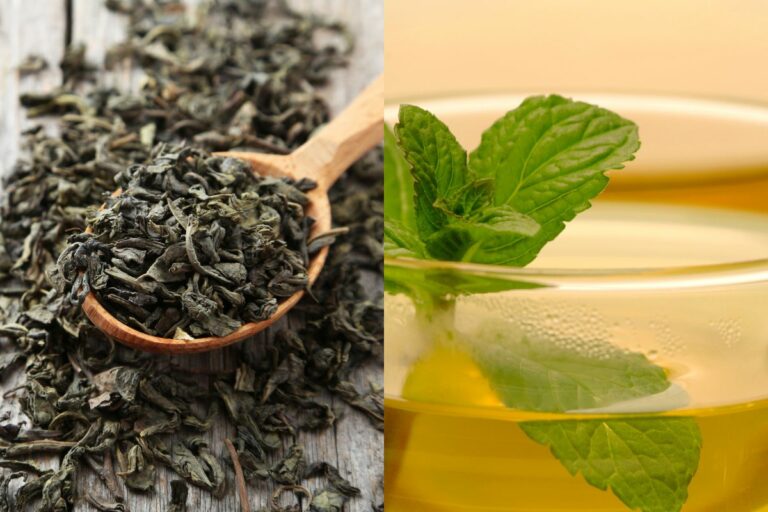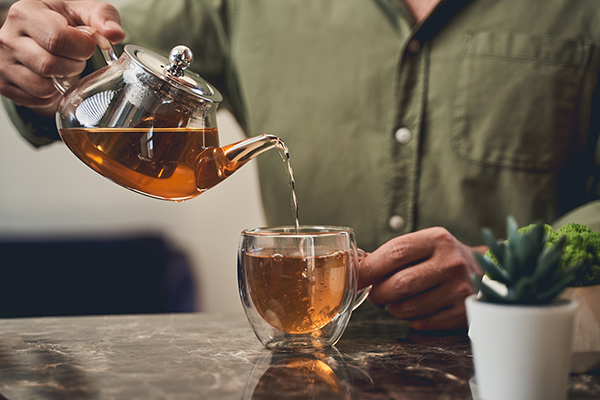Herbal Tea vs. Green Tea: What’s the Difference?
Tea has been relished globally for its calming properties and wellness benefits for ages. Two of the most popular types, green tea and herbal tea, are often confused or considered interchangeable.
We’ll delve into the distinctions between these tea types. We will also discuss their advantages and aid you in selecting the right one for you.
What Is Green Tea?
Green tea originates from Camellia sinensis leaves, which also yield black and oolong teas. The difference between these teas lies in the processing methods. Green tea leaves are quickly steamed or pan-fired to prevent oxidation, which helps retain their green color and delicate flavor. This minimal processing also allows green tea to maintain higher levels of antioxidants, particularly catechins, responsible for many of its health benefits.

What Is Herbal Tea?
Herbal teas, or tisanes, are made by steeping herbs, fruits, flowers, or spices in hot water. Unlike black, green, or oolong teas, herbal teas are not made from the Camellia sinensis plant. The most common herbal teas you might have heard of are chamomile, mint, and rooibos.
Typically caffeine-free, herbal teas boast a diverse flavor palette and health benefits. The flavor and health benefits depend solely on the herb or spice used.
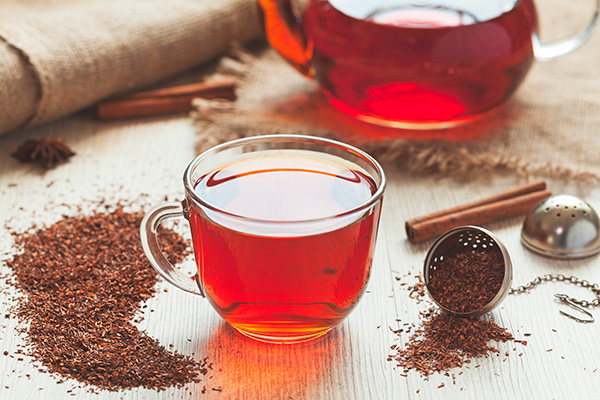


Is Green Tea an Herbal Tea?
While it’s understandable to mix up green and herbal tea, green tea isn’t an herbal tea. The main difference lies in their origins: green tea comes from the Camellia sinensis plant. In contrast, herbal teas come from diverse plants, herbs, fruits, and spices.
The Differences Between Green Tea and Herbal Teas
There are significant differences between green tea and herbal teas:
- Origin: Green tea originates from the Camellia sinensis plant. In contrast, herbal teas are made from herbs, fruits, or spices.
- Processing: Green tea is minimally processed, typically through steaming or pan-firing, to preserve its color, flavor, and antioxidants. Herbal teas do not undergo this process, as they are made from various ingredients that are typically dried before infusion.
- Caffeine content: Green tea contains caffeine, though in lower amounts than black or oolong teas. Herbal teas usually lack caffeine, but some components like yerba mate or guayusa may have it.
- Antioxidants: Catechins, potent antioxidants, are abundant in green tea, offering multiple health advantages. Herbal teas contain different antioxidants and compounds, depending on the ingredients used.
- Flavor: Green tea has a light, delicate flavor, often described as grassy or vegetal. Herbal teas vary in taste. Depending on the plant used, it can be fruity, spicy, or earthy.
- Health benefits: Green tea is associated with better heart health and weight loss, among other advantages. Herbal teas provide various health benefits depending on the ingredients. Aiding digestion, easing inflammation, or inducing relaxation are among herbal teas’ most common health benefits.
Is Green Tea More Beneficial or Herbal Tea?
It is challenging to declare a clear winner in terms of overall health benefits, as both green tea and herbal teas offer unique advantages.
Green tea’s antioxidants, notably catechins, promote heart health, weight loss, and lower cancer risk.
In turn, herbal teas supply a broad spectrum of health benefits depending on the ingredients. For example, chamomile tea soothes and aids sleep, while peppermint tea supports digestion and eases IBS symptoms. Some herbal teas, like hibiscus, also possess antioxidant qualities, enhancing overall health.
Ultimately, choosing between green and herbal tea depends on your preferences, needs, and health goals. Green tea might be the superior choice if you’re looking for proven health benefits and a slight caffeine kick. However, if you prefer a caffeine-free option or seek particular benefits from specific ingredients, herbal teas present a diverse array of options.
Here’s a comparison of green tea vs. peppermint tea in terms of caffeine content, health benefits, and taste.
Best Green Teas for You to Try
If you decide to opt for green tea, here’s a list of the best green teas to buy.
Final Thoughts
Green and herbal teas have distinct traits and health benefits, making them delightful and valuable daily additions. Comprehending these teas’ differences helps you make educated choices about the best fit for your preferences and wellness goals.
While teas contribute to a healthy lifestyle, they shouldn’t replace balanced nutrition and regular physical activity. Integrate green or herbal teas into a wholesome, well-rounded lifestyle for the greatest benefits.

